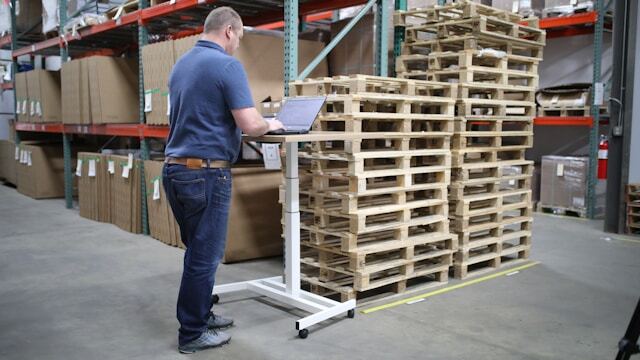
Technology underpins everything in manufacturing, from production line scheduling and inventory management to customer communication and remote monitoring. But as that reliance grows, so too does the pressure on internal teams to keep systems running smoothly, securely, and in compliance with evolving standards.
Many manufacturers are discovering that maintaining in-house IT expertise is becoming increasingly difficult. Skill shortages, rising cyber threats, and the complexity of hybrid IT/OT environments are driving a shift toward outsourced IT support. Done well, it offers not just a cost-effective alternative to growing an internal team, but a way to improve resilience, reduce downtime, and access strategic guidance when it’s most needed.
This article explores why manufacturers are choosing outsourced IT support, what it offers that in-house models often can’t, and how to make the right choice for your business.
The Strain on Internal Teams
Manufacturing firms have historically run lean. IT is often supported by one or two generalists, or rolled into the responsibilities of someone with another title. As demands increase, this model can quickly become unsustainable.
- Internal teams are often pulled in multiple directions:
- Supporting legacy infrastructure while onboarding cloud-based systems
- Maintaining compliance with security and data standards
- Managing user support, procurement, backups, and vendor relationships
- Responding to incidents without a formal plan or outside help
The result is overwork, inconsistent cover, and reactive problem-solving that leaves little time for strategic planning.
This isn’t a criticism of internal teams - it’s a reflection of how manufacturing IT has evolved. The question is no longer just “can we keep things working?” but “can we manage growth, risk, and digital transformation with what we’ve got?”
What a Managed Provider Brings to the Table
Outsourced IT support (often referred to as managed IT support) involves working with a specialist provider who delivers ongoing support, monitoring, and strategic input across your digital infrastructure.
The benefits include:
Broader Expertise
A managed provider brings access to a multidisciplinary team, covering networking, cyber security, cloud systems, compliance, and more. This breadth is hard to replicate internally unless you have a large IT department.
Read our guide to cyber security threats for manufacturing firms.
Predictable Costs
Most managed support arrangements work on a fixed monthly fee. This makes budgeting easier and eliminates surprise costs for emergency fixes or out-of-hours support.
Proactive Monitoring
Providers typically monitor systems 24/7 for signs of failure, intrusion, or misconfiguration. Issues are identified and resolved before they impact operations.
Strategic guidance
Good providers don’t just fix problems, they help plan upgrades, review risk, align IT with business goals, and prepare for changes in your regulatory or commercial environment.
Faster Response and Better Cover
With a service desk team in place, response times are often much quicker than internal teams can manage, especially outside standard working hours or during periods of absence.
5 Tangible Benefits for Manufacturing Companies
Outsourced IT support isn’t a generic solution: it delivers measurable value in manufacturing contexts specifically.
1. Reduced Downtime
Rapid incident response, proactive maintenance, and consistent patching help keep machines and systems online.
2. Increased Cyber Resilience:
Managed providers can implement network segmentation, multi-factor authentication, endpoint protection and other additional layers of cyber-protection, reducing the risk of ransomware or data loss.
3. Improved System Integration
Manufacturing often involves a mix of legacy equipment and new cloud tools. A provider can help bridge these gaps and improve data flows.
Read our guide to cloud services for manufacturing companies.
4. Easier Compliance
Whether you’re aiming for Cyber Essentials, ISO 27001, or just meeting customer requirements, a good provider will guide your compliance efforts and support audits.
Read our guide to ISO 27001 compliance for manufacturing companies.
5. More Focused Internal Resources
With day-to-day IT support handled externally, internal teams can focus on what they do best, whether that’s product development, engineering, or operational management.
Common Use Cases in Manufacturing
Outsourced IT support is especially useful in scenarios like:
- Support for remote or multi-site operations: Ensuring that all locations receive consistent support and have secure, reliable access to systems.
- Coordinating IT/OT integration: Managing the overlap between traditional IT systems and shop floor equipment in a secure, structured way.
- Covering resource gaps: Providing expertise during periods of recruitment, leave, or change.
- Preparing for certification: Supporting ISO 27001 or Cyber Essentials compliance through documentation, configuration, and review.
- Planning upgrades or migrations: Helping scope and implement infrastructure changes without risking disruption to production.
How to Choose a Provider That Understands Manufacturing
Not all IT providers are a good fit for manufacturers. When evaluating options, look for:
- Experience with OT environments: Providers should understand the importance of uptime, safety, and the practical limits of patching or downtime windows.
- Familiarity with sector regulations: From data protection to industry certifications, they should help you meet the requirements your customers and regulators expect.
- Flexible support hours: If your production runs early shifts, late shifts, or weekends, make sure cover is available when you need it.
- On-site capabilities: While remote support solves many issues, some problems require physical presence. Look for providers who can attend in person when required.
- A clear onboarding process: You’ll want to understand how they assess your systems, what documentation they’ll provide, and how they manage transitions.
Getting the Balance Right
Outsourcing doesn’t have to mean handing over everything. Many manufacturers adopt a hybrid approach, keeping someone in-house to oversee systems and user needs while outsourcing specialist support and strategic work.
This model works particularly well when:
- Your internal person handles bespoke systems support and configuration, or communication with other departments
- Your IT support provider takes care of day-to-day troubleshooting, infrastructure, security, monitoring, and compliance
- Both parties share access to documentation, asset lists, and policies
- There’s clear escalation and communication between the two
This combination gives you the benefits of familiarity and flexibility, backed by the depth and continuity of an external partner.
A Smarter Way to Support Your Systems
Manufacturing businesses can’t afford prolonged downtime, security breaches, or missed compliance obligations. As systems become more complex and threats more varied, internal teams often find themselves stretched beyond capacity.
Outsourced IT support offers a practical, scalable way to close the gap. It strengthens resilience, reduces overheads, and brings expertise that would be difficult or costly to build in-house. The key is finding a partner who understands your sector, your systems, and your goals: someone who won’t just maintain your IT, but improve it.
Book a free consultation today to find out how we could provide expert IT support to your organisation.


